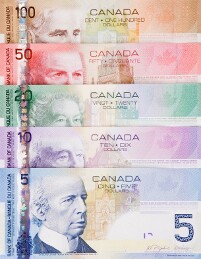
The US dollar is trading lower against its major currency rivals on Tuesday after new US government data found that wholesale inflation declined at the end of 2018, recording its biggest drop in five months. The greenback is also tumbling on a variety of comments from the experts warning about the government shutdownâs impact on the US economy.
In December, the producer price index (PPI) slipped 0.2%, beating median estimates of 0.1%, according to the Bureau of Economic Analysis (BEA). The jump in wholesale inflation over the last year was flat at 2.5% as the 12-month rate reached a seven-year peak of 3.4% in July 2018.
The wholesale cost of goods tumbled 0.4%, thanks to the 13% crash in gasoline prices. The cost of services dipped 0.1% to lodge the first decline in four months. Wholesale food prices did climb 2.6%.
In the end, inflation gradually fell toward the end of 2018 because of the dramatic drop in gas prices. Inflation has also been aided by the tepid increases in a diverse array of key household expenses, including groceries and healthcare. However, households have experienced large increases in rents, while businesses have had to endure higher prices for raw materials.
Meanwhile, as the US government shutdown becomes the longest in the nationâs history, some leading experts are sounding the alarm about its impact on the national economy.
Late last week, Federal Reserve Chairman Jerome Powell said that a prolonged government shutdown, no matter how partial, could have serious consequences to the overall economy. He told the Economic Club of Washington:
In the short term, government shutdowns don’t last very long. They typically have not left much a market on the economy, which isn’t to say there’s plenty of personal hardships that people undergo.
A longer shutdown is something we haven’t had. If we have an extended shutdown, I do think that would show up in the data pretty clear.
JPMorgan Chase echoed these comments, warning that the longer it goes on the more it will affect the economy and financial markets. The Wall Street titan noted that the shutdownâs effects are seen more in market sentiment than a direct impact on businesses.
As one-quarter of the government remains partially closed, it is becoming increasingly difficult to assess the health of the economy. This makes it harder to determine growth, employment, and spending because reports are either delayed or distorted. Home construction and retail sales data are scheduled to be released next week, but the staffers are furloughed, so the numbers will not be made available.
The US Dollar Index surged 0.62% to 96.17.
The USD/CAD currency pair slid 0.04% to 1.3280, from an opening of 1.3287, at 15:49 GMT on Tuesday. The EUR/USD plummeted 0.71% to 1.1391, from an opening of 1.1471.
If you have any questions, comments or opinions regarding the US Dollar,
feel free to post them using the commentary form below.